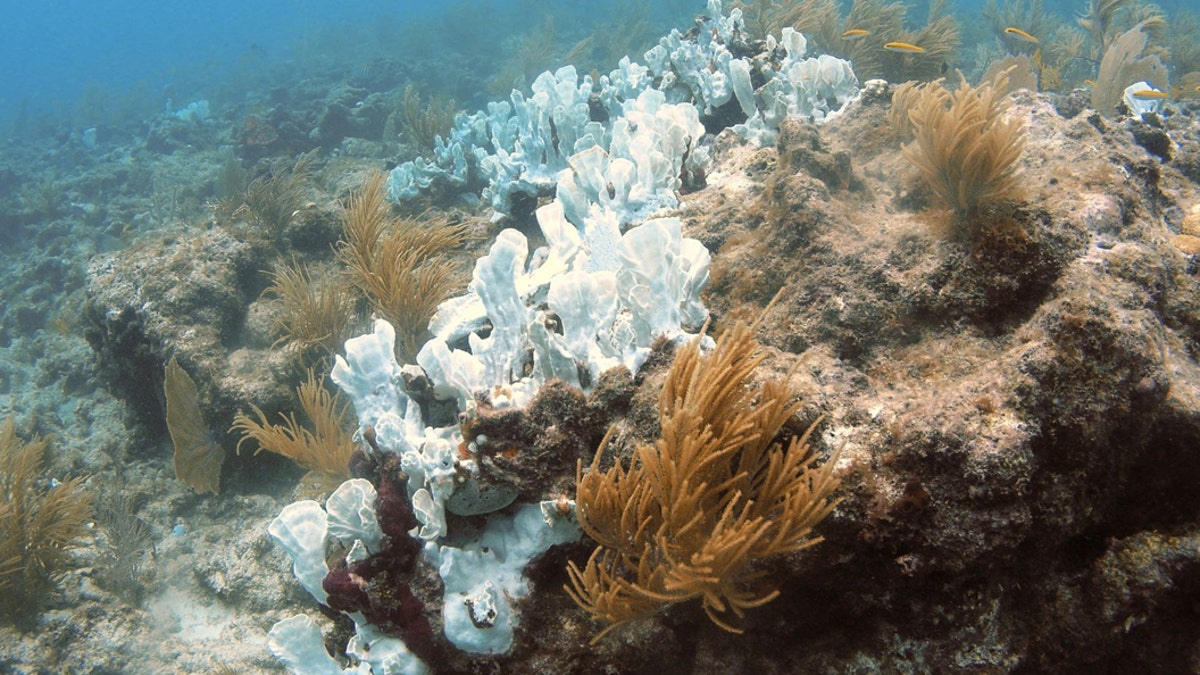Fox News Flash top headlines for Feb. 20
Fox News Flash top headlines are here. Check out what's clicking on Foxnews.com.
Coral reefs around the world are dying and scientists are looking at a variety of ways to save these endangered structures, including growing them in labs and trying to make them pollution-resistant. However, newly presented research says climate change and pollution could eliminate nearly all coral reef habitats on the planet by the end of the century.
The research said that warming, acidic oceans and rising temperatures could wipe out "nearly all existing coral reef habitats by 2100," adding that efforts to restore the reefs "will likely meet serious challenges."
“By 2100, it’s looking quite grim,” said University of Hawaii Manoa biogeographer Renee Setter in a statement. Setter presented her findings at the annual San Diego-based Ocean Sciences Meeting.

Coral bleaching happens when corals are stressed by conditions such as high temperatures. According to new research, rising sea surface temperatures and acidic waters could eliminate nearly all existing coral reef habitats by 2100. (Credit: USGS)
DYING CORAL REEFS COULD BE SAVED BY PLAYING SOUNDS OF HEALTHY CORAL REEFS FROM SPEAKERS
In August, the government agency that manages Australia's Great Barrier Reef downgraded its outlook for the corals' condition from "poor" to "very poor" due to warming oceans. Florida scientists have enacted a 10-year, $100 million program in an effort to stop coral reef deaths in the Florida Keys.
Setter, along with the other researchers, noted that while the efforts being made so far to clean up plastic pollution in the oceans--which could have a $2.5 trillion impact on the global economy--and cleaning the beaches are positive steps, much of the impact comes from emissions.
“Trying to clean up the beaches is great and trying to combat pollution is fantastic. We need to continue those efforts,” Setter added. “But at the end of the day, fighting climate change is really what we need to be advocating for in order to protect corals and avoid compounded stressors.”
LAB-GROWN CORAL COULD SAVE ENDANGERED REEFS
To come up with the findings, Setter and the other researchers simulated ocean environment conditions, including sea surface temperature, wave energy and acidity of the water, among other inputs. They found that where coral reefs are located at the present, the conditions for "suitable habitats" would not exist by 2045, with the situation getting dire extended out to 2100.
“Honestly, most sites are out,” Setter said. There are a few viable sites looking out to 2100, including "small portions" of Baja California and the Red Sea. However, these locations are not considered "ideal," because of how close they are to rivers.
Skeptics have largely dismissed fears over man’s impact on global warming, saying climate change has been going on since the beginning of time. They also claim the dangers of a warming planet are being wildly exaggerated and question the impact that fossil fuels have had on climate change.
CLICK HERE TO GET THE FOX NEWS APP
The Associated Press and Fox News' Elina Shirazi contributed to this report.

